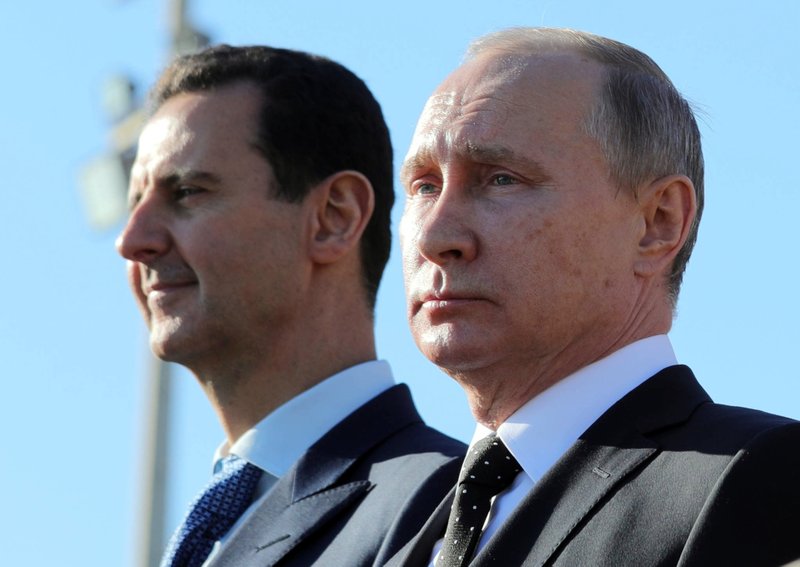BEIRUT -- Syrian rebels and opposition groups on Tuesday rejected Russia's proposed peace talks, accusing Moscow of failing to pressure its ally, President Bashar Assad, to end the conflict.
In a series of statements, 40 rebel groups, including some of Syria's most prominent, as well as political opposition groups, said the talks expected next month are an attempt to "circumvent" the U.N.-led process, which has made virtually no progress since it began in 2014.
The rebel groups said Moscow has asked them to give up their demand for Assad to step down.
"We reject this, and we affirm that Russia is an aggressor that has committed war crimes against Syrians," the statement signed by 40 rebel groups said. "Russia has not contributed with a single move to alleviate the suffering of the Syrian people and it has not pressured the regime it claims it guarantees to move an inch toward any real path toward a resolution."
The rebel groups, including Ahrar al-Sham, Army of Islam and a number of Western and regionally backed outfits, said they are committed to the U.N.-led Geneva process and called on the international community to end the bloodshed, now in its seventh year. Political opposition groups and governing bodies in rebel-held areas have also rejected Russia's proposed talks.
The talks are scheduled for Jan. 29-30 in Sochi and were announced after talks among Russia and Iran, which back the government, and Turkey, which supports the opposition.
Syria's government said it would attend the talks. Assad told reporters recently that the Sochi talks have a clear agenda of discussing new elections and possibly amending the constitution.
The fate of Assad has been the main point of contention in all previous rounds of talks. The opposition has long called for a transitional period in which Assad would have no role, something the government refuses to consider.
The Sochi talks would open up a fourth track of talks between parties to the complex conflict. The U.N.'s own Geneva program has been supplemented by "technical" talks in Astana brokered by Russia, Iran and Turkey.
Russia periodically opens a third track through Cairo. Egypt has provided a base for Syrian reformists seen as acceptable to the Damascus government.
It's not yet clear who will attend the Sochi talks.
Turkey has said the Syrian Kurdish group known as the Democratic Union Party, which governs about 25 percent of Syria's territory and wants autonomous rule, should not be invited. Russia said last week that Kurdish representatives would attend, but that it would not invite the Democratic Union Party.
Information for this article was contributed by Nataliya Vasilyeva of The Associated Press.
A Section on 12/27/2017
